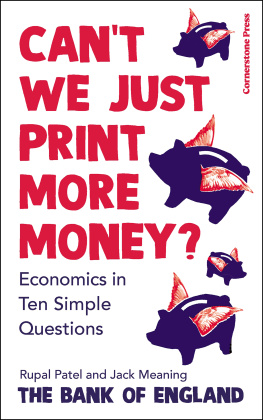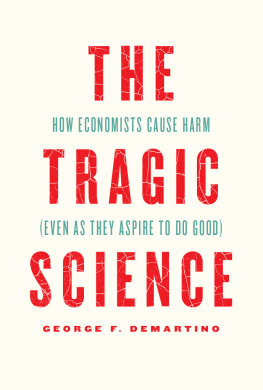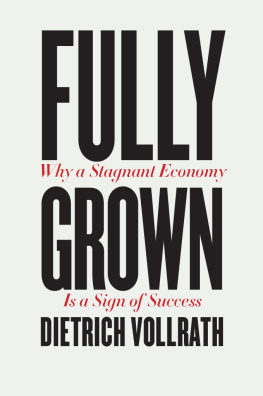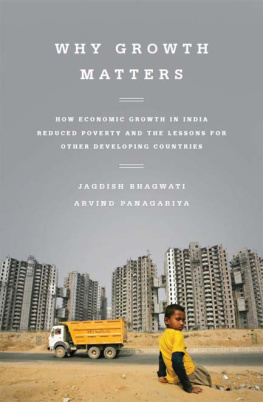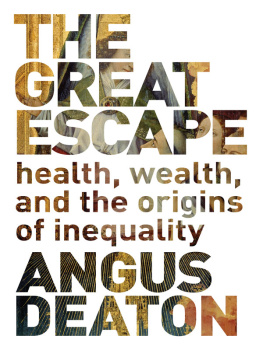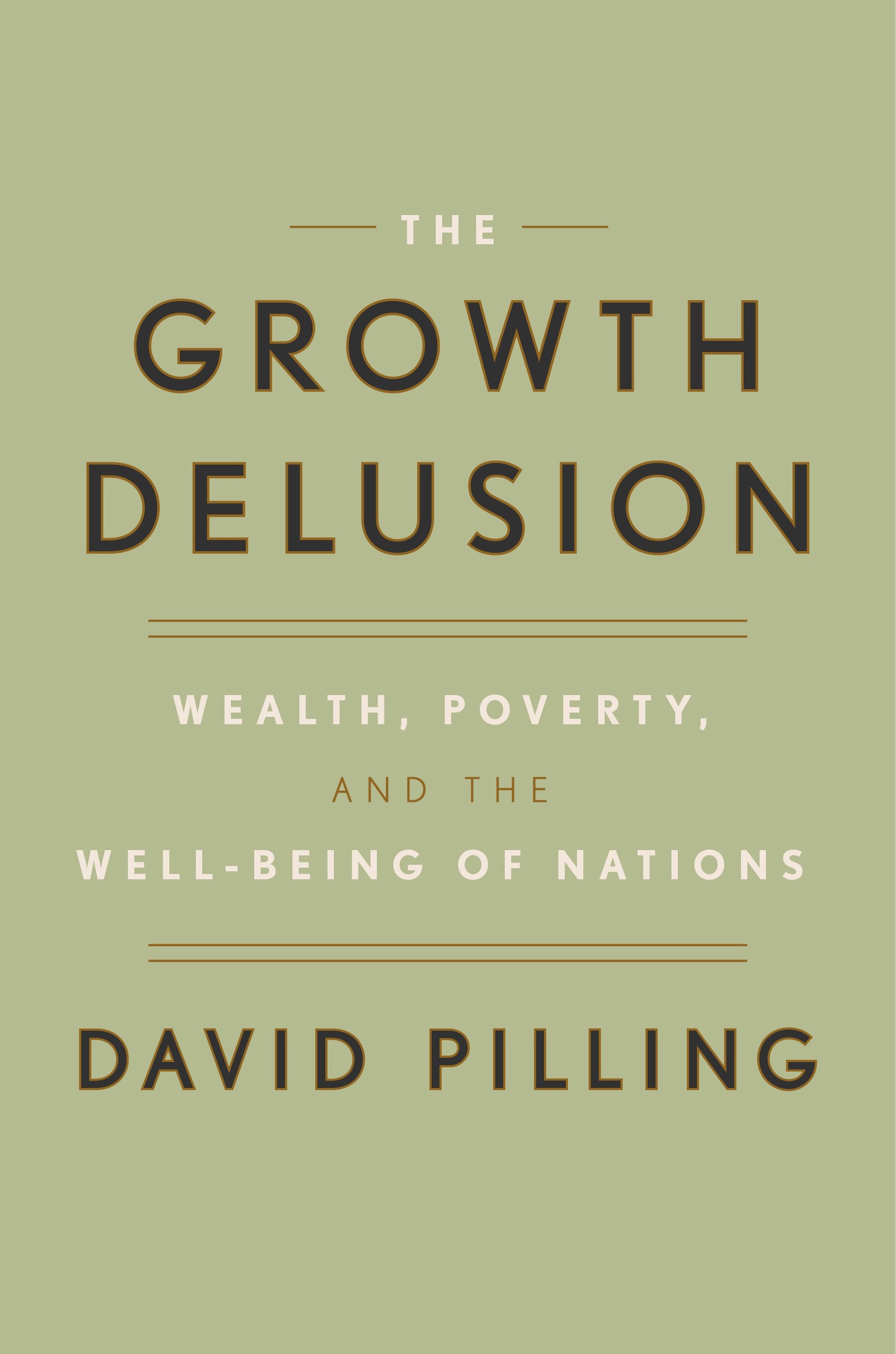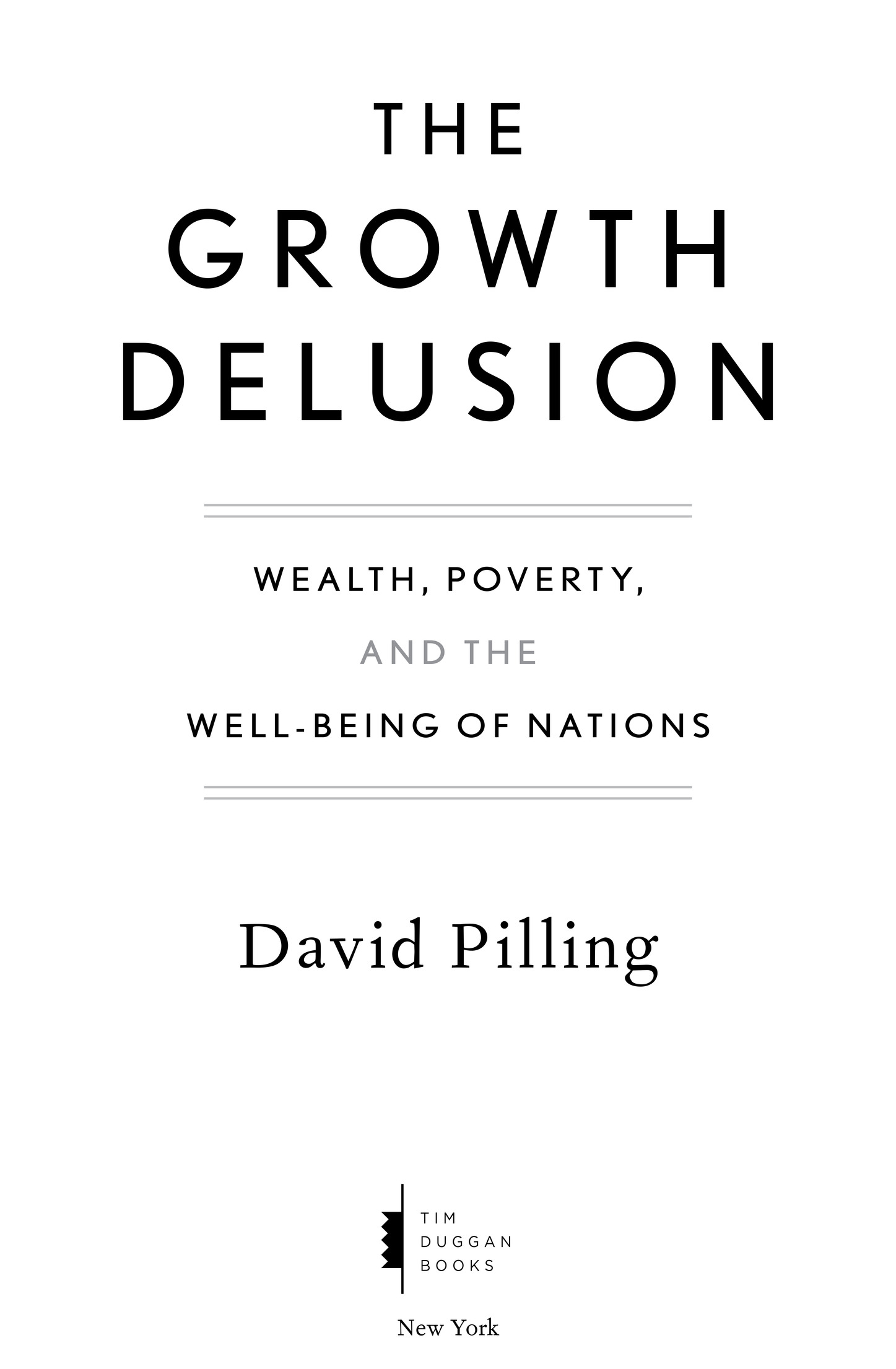All rights reserved.
Published in the United States by Tim Duggan Books, an imprint of the Crown Publishing Group, a division of Penguin Random House LLC, New York.
TIM DUGGAN BOOKS and the Crown colophon are trademarks of Penguin Random House LLC.
The writing of this book was made possible by the generous award of a Journalist Fellowship from the Friends Provident Foundation.
Names: Pilling, David (Editor), author.
Title: The growth delusion: wealth, poverty, and the well-being of nations / David Pilling.
Description: 1st American Edition. | New York: Tim Duggan Books, 2018.
Identifiers: LCCN 2017046122| ISBN 9780525572503 (hardcover) | ISBN 9780525572527 (ebook)
Subjects: LCSH: Economic development. | Poverty. | Wealth. | BISAC: BUSINESS & ECONOMICS / Economic History. | BUSINESS & ECONOMICS / Econometrics.
Classification: LCC HD82 .P495 2018 | DDC 338.9dc23 LC record available at https://lccn.loc.gov/2017046122.
THE CULT OF GROWTH
For over seventy years the advanced societies of the world have preened in the mirror and mostly admired what they saw: growth. The mirror is called gross domestic product and it has become our principal means of judging how beautiful we are, both as economies and as societies. The economythe thing that GDP seeks to measureis all around us. You cant smell it or touch it. But it is the background noise of the modern world. It is the staple fodder of headlines, business channels, and political debate. Yet, for such a fundamental concept, surprisingly few know precisely what the economy is or how we gauge its progress. All we know is that it must constantly be moving forward, like a shark.
We define the economy in terms of GDP. In modern times, and against its inventors warnings, GDP has become a proxy for a countrys well-being. If the economy is growing, then things must be good. If it is shrinking, then not so much. But the mirror into which we have been staring is more of the fairground than the bathroom variety. The image reflected back is grossly distorted and increasingly at odds with reality. Our economic mirror is broken.
We are living in an age of anger, defined by popular backlash and rejection of previously cherished institutions and ideals, up to and including Western liberalism itself. In the US that has led to the rise of Donald Trump. Britain has voted for Brexit, and in Europe unconventional parties, both on the right and the left, have shaken the status quo. There are political convulsions, caused by popular revolt, from India to Brazil and from the Philippines to Turkey.
There are many competing explanations for what has caused popular rage in countries that have, judged by conventional measures, never been richer. There is, though, a common thread. People do not see the reality of their lives reflected in the official picture, the picture painted principally by economists. Some of the forces at play in this backlash stem from issues of identity, a sense of helplessness, lack of affordable housing, an absence of community, and anger against money politics and rising levels of inequality. Some stem from the fact that our definitions of growth and the economy no longer fit peoples lived experience. This book aims to explain the gulf between what experts say about our lives and what our lives actually feel like.
Though almost everyone has heard of GDP, few know it was invented as recently as the 1930s as a tool to counter the Great Depression and then reworked as a means to prepare for the Second World War. The first thing to understand is that the economy is not a natural phenomenon, a truth to be discovered. Before 1930 it practically didnt exist. It is a man-made thing, like cotton candy or car insurance or double-entry bookkeeping.
If GDP were a person, it would be indifferent, blind even, to morality. It measures production of whatever kind, good or bad. GDP likes pollution, particularly if you have to spend money clearing it up. It likes crime because it is fond of large police forces and repairing broken windows. GDP likes Hurricane Katrina and is quite OK with wars. It likes to measure the buildup to conflict in guns, planes, and warheads, then it likes to count all the effort in reconstructing shattered cities from the smoldering ruins. GDP is good at counting, but a pretty poor judge of quality. It has terrible table manners. For GDP, a dinner setting of three forks does just as well as a knife, fork, and spoon.
GDP is mercenary. It doesnt deign to count transactions where no money changes hands. It doesnt like housework (here, at least, I find common cause) and it shuns all volunteer activities. In poor countries it struggles to account for most human endeavor, the bulk of which takes place outside the moneyed economy. It can count a bottle of Evian in the supermarket but not the economic impact of a girl in Ethiopia who trudges for miles to fetch water from a well.
Growth is a child of the manufacturing age, and GDP was designed primarily to measure physical production. It struggles to make sense of modern service economies, quite a defect in rich countries where services, like insurance and landscape gardening, dominate. It is not bad at accounting for production of bricks, steel bars, and bicyclesthings that you can drop on your foot. But try it out on haircuts, psychoanalysis sessions, or music downloads and it becomes distinctly fuzzy. It is bad at measuring progress, precisely the thing we imagine it is good at. To our principal measure of growth, an antibiotic is worth pennies, even though a syphilitic billionaire from a century ago might have handed over half his fortune for a seven-day course.
Our definition of the economy, in short, is pretty crude. As someone remarked casually to this author, If youre stuck in traffic for an hour, that contributes to GDP. If you go around to a friends house to help out, that doesnt. It was, he said, all you need to know. In the hope that he was wrong about that, I hope youll read on.
We all sense instinctively that something is wrong. But we struggle to put our finger on it. The global financial crisis of 2008 was the ultimate signal that economics had let us down. In the run-up to the collapse of Lehman Brothers and the onset of recession in virtually the whole Western world, the cult of growth had led us to celebrate our economies. People like Alan Greenspan, chairman of the Federal Reserve, said everything was going swimmingly and that the markets should be left alone to create ever more wealth.
In fact, our standard measures had told us little about how growth was being created: that it was built on a foundation of exploding household debt and ever cleverer (for which read ever more stupid) financial engineering by bonus-crazed bankers. Advanced economies had supposedly reached a new nirvana known as the Great Moderation, in which booms and busts had been consigned to history by clever technocrats and in which the market, if left to its own devices, always reverted to a happy state of equilibrium.
Economic growth told us little about rising inequality nor about huge global imbalances. The US was running huge trade deficits financed by Middle Eastern oil exporters and China, both of which were busy recycling their trade surpluses into US Treasury bonds. The Chinese were in effect lending Americans money so that they could afford all the stuff being produced in the factory of the world. Thats what kept the growth merry-go-round spinning. Until it stopped. Years later, many Western countries, especially in Europe, are still struggling to bring their economies back to pre-2008 levels. Much of the growth of the previous years had, it turned out, been an illusion.







